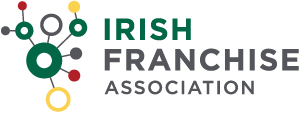Value Builder Factor 7 – Customer Service
One Question Can Predict the Future of Your Company
Are your customers likely to recommend your business to their friends? The answer can make or break your business.
“On a scale of zero to 10, how likely are you to refer to a friend or colleague?” -Reichheld IMAGE: Corbis
Most start-ups know whether their customers are satisfied. But once you build your business to the point of having more than a handful of customers and just a couple of customer-facing employees, how do you monitor your customer satisfaction levels?
Many business owners solve the problem by launching some sort of customer satisfaction survey, but the problem with typical surveys is that, according to Fred Reichheld, author of The Ultimate Question, most customer satisfaction surveys do a poor job of predicting the likelihood of a customer either repurchasing from you or referring your company to a friend.
Determined to find a better way to quantify how well a company is serving its customers, Reichheld developed the Net Promoter Score methodology, which is based around asking customers a single question that is predictive of both repurchase and referral: “On a scale of zero to 10, how likely are you to refer to a friend or colleague?”
Reichheld discovered that when customers answered this question with a nine or 10, they were statistically more likely to repurchase from the company and/or refer it—so much so that Reichheld found that the companies that score well on this measure were more likely to grow than were lower-scoring companies.
Not surprisingly, the news that a researcher had actually discovered a way to predict growth triggered Fortune 500 companies around the globe to latch on to the methodology. Today, companies such as Intuit and Southwest Airlines use the Net Promoter Score methodology as a way to quantify their customer experience.
How does your company measure up?
To see how your company measures up, survey a group of your customers by asking the question above. Those who rate you a nine or a 10 are your “Promoters” in Reichheld’s lingo. Your “Passives” are the customers who give you a seven or eight—they are satisfied but not likely to repurchase from you or refer your company anytime soon. Your “Detractors” are the angry customers who score you between zero and six.
To calculate your Net Promoter Score, take the percentage of your customers who are “Promoters” and subtract the percentage of Detractors. For example, if 45 percent of your customers are Promoters, 20 percent are Passives and 35 percent are Detractors, then your Net Promoter Score would be 10 percent (45-35=10).
Reichheld found the average Net Promoter Score among the companies he surveyed was 10 to 15 percent, so by definition, if your score is north of 15 percent, you’re above average, and you can expect your company to grow at a rate faster than the economy. A small handful of companies have achieved a Net Promoter Score of at least 50 percent, which Reichheld defines as “World Class.” Not surprisingly, companies with a World Class Net Promoter Score are the growth stories of the economy: Apple, Google and Harley-Davidson.
As popular as the Net Promoter Score methodology is among the Fortune 500, I think it is even better suited for use among smaller companies for a number of reasons:
1. It’s easy. You can deploy the questionnaire in five minutes using a survey tool like Survey Monkey and enjoy a very high response rate because answering it is not a burden on respondents.
2. It gives you a common language with investors. If you’re planning to sell all or part of your company in the future, tracking your customer satisfaction using a well-established, recognized tool allows potential acquirers and investors to quickly gauge how satisfied your customers are relative to those of other companies they have invested in. Many private equity firms and venture capitalists will insist on performing a Net Promoter Score survey with your customers before they invest in your business.
3. It’s cheap. The survey can be deployed and the data analyzed easily in house.
4. It’s predictive. Unlike most surveys, which ask respondents a litany of time-consuming questions that render interesting but often irrelevant data, the Net Promoter Score methodology asks the only question that has been proven to predict the likelihood a customer will repurchase or refer you—the two things that fuel growth of any business.
If you’re starting to lose the pulse of how satisfied your customers are, consider asking the one question you really need the answer to.
Click here to get your score now.
The Value builder score is an easy way to instantly see how well you are performing against the 8 Factors that drive value in your business.
Click here to attend our next FREE workshop!
Links to the 8 Factors Series:
- The valuation technique used by professional business buyers;
- The three attributes of a scalable business model;
- How to bulletproof your business from demanding employees, overbearing customers, and suppliers who hold you hostage;
- One simple technique for eliminating cash flow worries;
- The one kind of revenue that can triple the value of your business;
- The two essential elements of your marketing plan you need in order to avoid commoditisation and costly price wars;
- The one question you need to ask your customers to predict the likelihood that they will buy again in the future and refer you to others.
- Are you working IN or ON your business
Business Doctors is a business support network dedicated to helping small and medium sized businesses achieve their vision. We are experienced business people, passionate about sharing our skills and experiences. Our aim is to offer hands-on support, dedicated to getting you back on track to growing a profitable and more valuable business.
The Value builder score is an easy way to instantly see how well you are performing against the 8 Factors that drive value in your business. Business Doctors are certified Value Builders combining elements of the system created BY JOHN WARRILLOW with 10 years of hands on experience in helping businesses grow.








